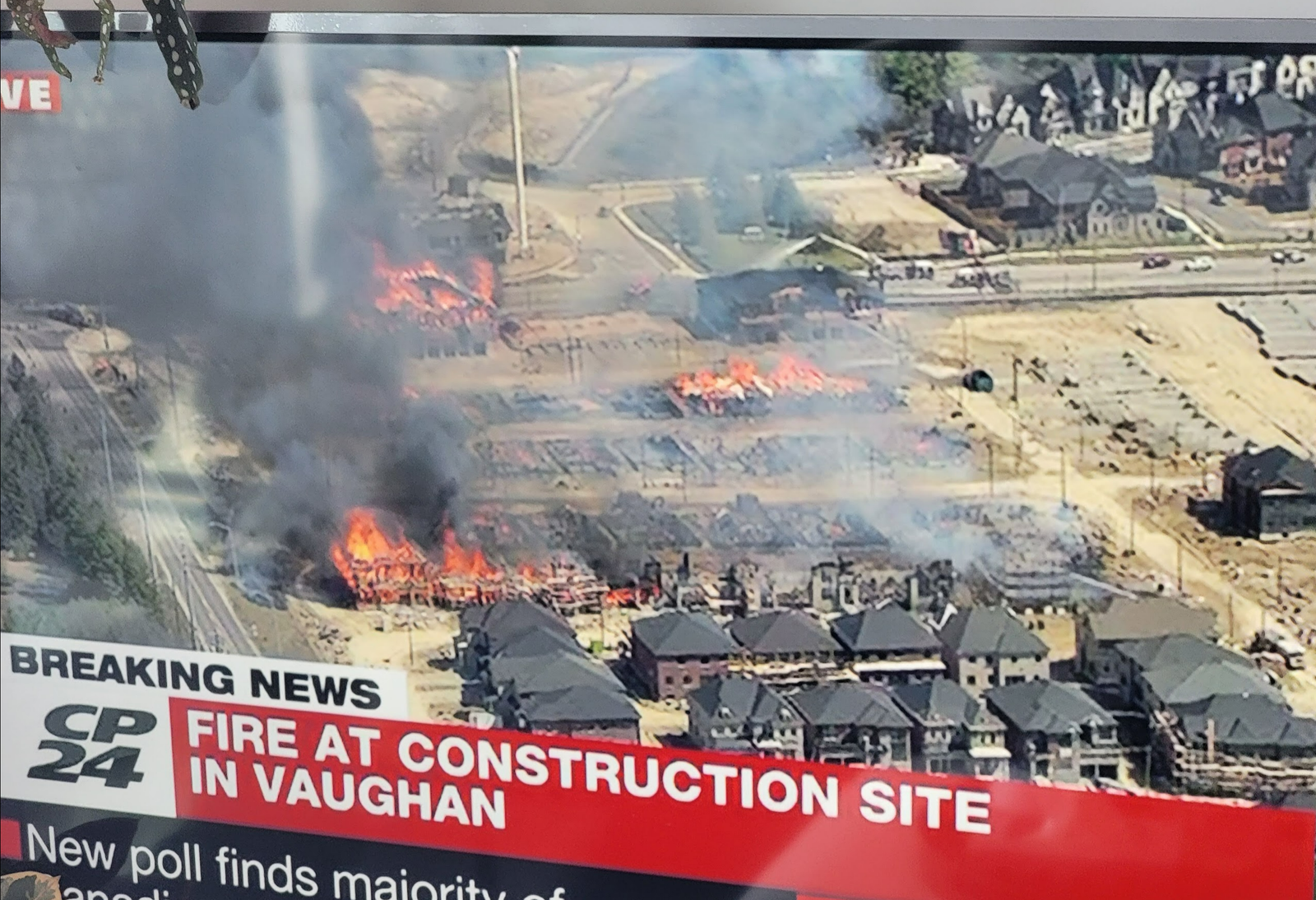Toronto's condo market is undergoing a significant transformation, as evidenced by the dramatic 81% drop in sales during Q3 2024. This shift has created a complex landscape for buyers, investors, and industry professionals alike. With changing preferences, price disparities, and evolving market dynamics, understanding the nuances of this sector has become more essential than ever. As interest rates potentially decline and market activity rebounds, those who can navigate these changes strategically stand to benefit. The question remains: how will stakeholders adapt to capitalize on emerging opportunities in this fluctuating market?
Key Takeaways
- Sales have dropped significantly, with Q3 2024 seeing an 81% decrease in condo sales compared to previous years.
- Resale condos are priced lower than pre-construction units, creating a 40% price spread and buyer hesitation.
- Buyers prefer larger units (500-800 sq ft) with functional layouts, while smaller bachelor units face low demand.
- Investor absence has led to market stagnation, with future dynamics dependent on their re-engagement.
- Analysts project potential condo shortages by 2028-2029, despite current oversupply, emphasizing strategic decision-making for buyers and sellers.
Current Market Snapshot
In the midst of Toronto's ever-evolving real estate landscape, the condo market is experiencing a significant downturn. The third quarter of 2024 saw condo sales plummet by 81%, with only 567 new units sold—an average of 180 per month. This marks the lowest sales level since 1995, despite substantial population growth in the intervening years. The year-over-year decline is even more stark at 87%.
Despite this downturn, downtown core condos remain competitive, with tight inventory leading to multiple offers in some cases. The anticipation of interest rate cuts is acting as a catalyst, encouraging some buyers to re-enter the market.
Pre-construction condo demand has waned dramatically, leading to project cancellations and conversions to rental properties. Many developments face delays due to financing challenges, with those failing to secure 70-80% pre-sales at risk of cancellation.
Builder confidence has eroded, impacting new project launches and profitability. This market contraction is reshaping Toronto's condo sector, forcing stakeholders to reassess strategies and adapt to the new reality.
Price Disparities Explained
Toronto's condo market is grappling with a significant price disparity between resale and pre-construction units. Resale condos are priced between $900 to $1,100 per square foot, while new pre-construction condos command $1,300 to $1,600 per square foot. This 40% price spread is causing buyer hesitation and impacting market dynamics.
The current market conditions have led to a notable decline in Toronto condo sales, with some describing the market as a ghost town. Despite this, prices have remained relatively stable, though high inventory levels suggest potential price drops in the future.
Recent resale prices have settled at approximately $877 per square foot, down from the pandemic peak of $1,100. The substantial inventory of unsold new condos is forcing developers to reconsider their pricing strategies, particularly for properties that don't appeal to end-users.
This price adjustment is necessary to stimulate sales and reduce the growing inventory. The discrepancy between resale and new condo prices reflects the current market challenges, including financing issues and shifting buyer preferences, ultimately influencing purchasing decisions and overall market stability.
Buyer Preferences Shift
Amid the shifting landscape of Toronto's condo market, buyer preferences have undergone significant changes. The demand has pivoted towards larger, more functional living spaces, with 1-2 bedroom units over 500-800 square feet gaining popularity.
In contrast, smaller bachelor units under 499 square feet face high inventory and low demand. End-users are now prioritizing practical layouts and livable spaces, moving away from investor-oriented properties. This trend aligns with the Market Watch Minute insights, which offer essential information on real estate trends in the Greater Toronto Area.
This shift is evident in the struggle of three-bedroom units to attract buyers, indicating a preference for more manageable living arrangements. The market is increasingly distinguishing between investor and end-user preferences, with the latter finding better opportunities in the current climate.
Well-designed properties with functional layouts continue to attract buyers, albeit without the multiple offers seen in previous years. This trend underscores the importance of understanding evolving buyer needs in the Toronto condo market.
Investor Sentiment and Challenges
The lack of investor purchases has led to stagnant market conditions, emphasizing the significance of understanding product types when buying or selling.
Future market dynamics will heavily depend on investor re-engagement.
The current situation presents potential turmoil for condo investors, highlighting the need for strategic planning and continuous monitoring of inventory levels.
Engaging with market experts is essential for maneuvering these challenging conditions.
Future Market Projections
Looking ahead, market analysts project a potential shortage in condo availability for 2028-2029, despite the current oversupply. This forecast underscores the cyclical nature of real estate markets and the significance of long-term planning.
The future market dynamics will largely depend on the absorption of existing inventory and the return of investor confidence. Price increases are contingent on these factors, with particular attention to the resolution of the current price discrepancies between resale and pre-construction units.
Strategic decision-making will be vital for both buyers and sellers. Continuous monitoring of inventory levels, buyer preferences, and market trends will be essential for traversing the evolving landscape.
As the market adjusts, opportunities may arise for those who can identify value in end-user friendly properties and larger units that align with shifting consumer demands. Engaging with market experts for personalized advice will be key to capitalizing on future market conditions.
Strategic Buying Considerations
Given the complex market dynamics and future projections, prospective buyers must approach Toronto's condo market with a well-informed strategy.
Focus on end-user friendly properties with functional layouts, particularly larger units between 500-800 square feet. Prioritize resale condos priced between $900-$1,100 per square foot, as they offer better value compared to pre-construction units.
Be cautious of smaller units under 499 square feet and three-bedroom units, which face high inventory and low demand. Consider the potential for future market turmoil and price adjustments when evaluating investments.
Assess the property's appeal to both end-users and investors, as this will impact long-term value. Stay informed about inventory levels and market trends, consulting with experts for personalized advice.
Ultimately, strategic planning based on evolving market conditions is essential for successful navigation of Toronto's condo market.
Adapting to Market Changes
Amid the shifting landscape of Toronto's condo market, buyers and investors must remain agile and responsive to ongoing changes.
The significant decline in sales, especially for pre-construction condos, necessitates a reassessment of investment strategies. Buyers should focus on end-user friendly properties with functional layouts, as smaller units face high inventory and low demand.
The widening price gap between resale and new condos requires careful consideration, with resale options potentially offering better value.
Investors must be prepared for potential losses on underwater properties and adapt to the changing sentiment reflected in assignment sales.
Moving forward, strategic decision-making based on evolving inventory levels and market conditions is essential. Engaging with market experts and continuously monitoring trends will be vital for successfully maneuvering the current market challenges and positioning for future opportunities.
Conclusion
Toronto's condo market is undergoing significant transformation, necessitating strategic adaptation from buyers and investors. The stark decline in sales, shifting preferences towards larger units, and price disparities between resale and pre-construction properties underscore the importance of informed decision-making. As the market anticipates a rebound with potential interest rate cuts, stakeholders must remain vigilant to emerging trends. Successful navigation of this evolving landscape requires a nuanced understanding of market dynamics and a willingness to adjust strategies accordingly.


















